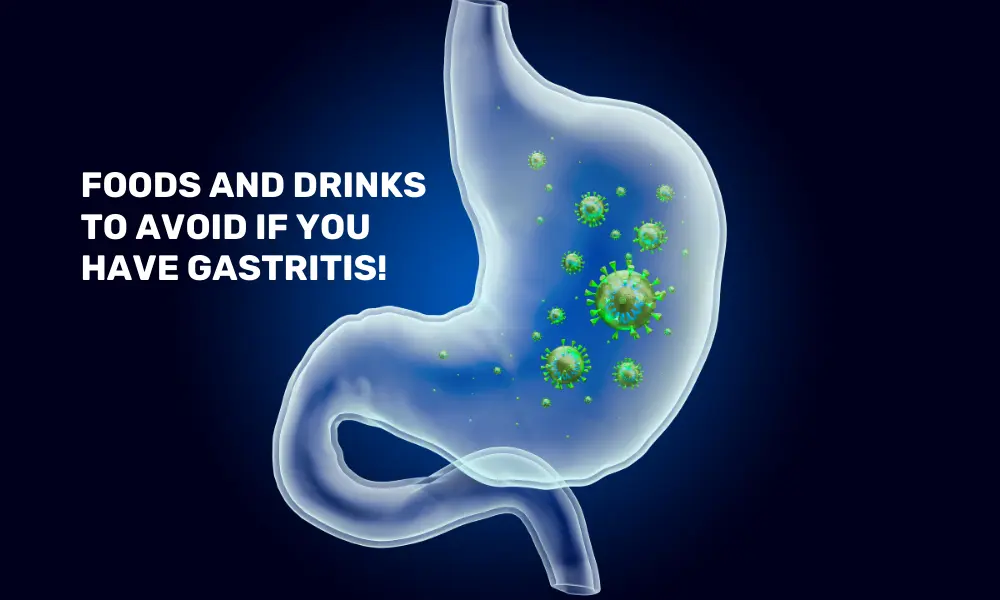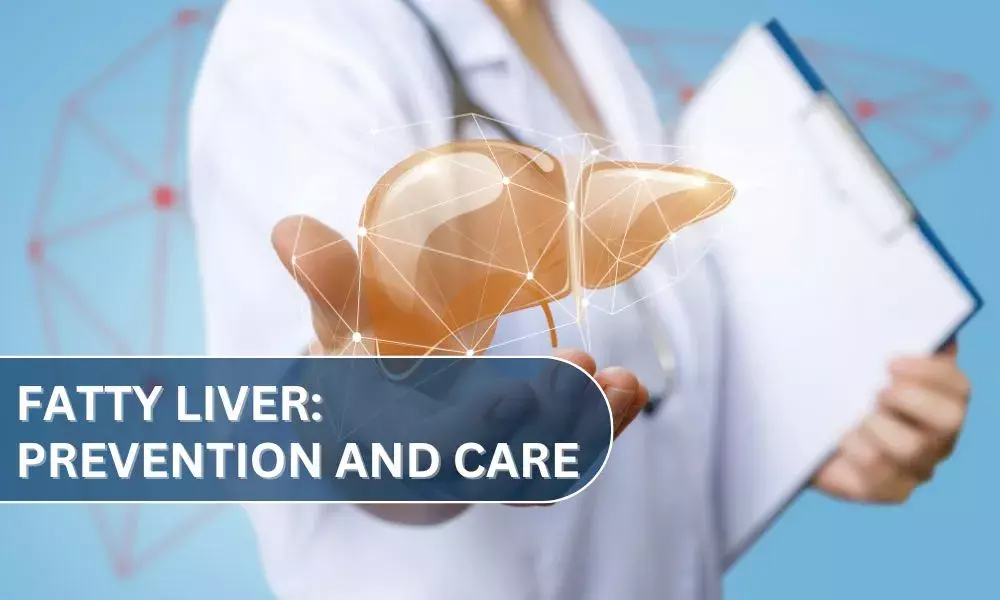Gastritis is an inflammation of the stomach lining that may be due to excessive acid production, infection, or other medications. Even though medical intervention is necessary, diet plays a crucial role in the management of symptoms and the prevention of flare-ups.
Our in-house expert, Dt. Aparna Pandey, MSC-Nutrition and Dietetics, shares an exhaustive list of certain foods and drinks that must be avoided if one has gastritis.
1. Spicy and Acidic Foods
Capsaicin irritates the stomach lining and enhances acid secretion in spicy foods. Acidic foods like citrus fruits and tomatoes tend to worsen the symptoms through acid reflux.
Avoid:
-
Chili peppers, hot sauces, spicy curries
-
Raw onions and garlic
-
Citrus fruits (oranges, lemons, grapefruits)
-
Tomatoes and tomato-based products
Recommended Alternatives:
Mild herbs like basil, oregano, and turmeric can be used to add flavor without causing irritation. Instead, choose fruits that are not citrus fruits like bananas and melons.
2. Fried and High-Fat Foods
High-fat food takes a long time to digest and thus stretches out the time of acid exposure in the stomach. Fried foods, in particular, damage the natural mucosa barrier of the stomach and worsen the gastritis symptoms.
Avoid:
-
Deep-fried foods (French fries, fried chicken, pakoras)
-
Full-fat dairy products, including butter, whole milk, and cream
-
Red meat and processed meats
Recommended Alternatives:
Lean protein sources would include grills of chicken or fish, or plant-based proteins. Healthy fats come from avocados and olive oil.
3. Caffeinated Drinks
Caffeine stimulates acid production that worsens gastritis and may cause acid reflux. Even half-caf coffee contains harmful compounds for your stomach.
Avoid:
-
Coffee (regular and decaf)
-
Strong black tea
-
Energy drinks
-
Carbonated sodas
Recommended Alternatives:
For example, herbal teas like chamomile, ginger tea, or any herbal tea are soothing to the stomach but do not stimulate acid production.
4. Alcohol
The irritative effect alcohol exerts on the stomach lining also enhances acid production. Chronic use is, therefore, a leading cause of gastritis symptoms. Alcohol can delay recovery as well.
Avoid:
-
Beer
-
Wine and spirits
-
Mixed alcoholic drinks
-
Cocktails
Recommended Alternatives:
Hydrating drinks like coconut water and diluted herbal teas are better alternatives.
5. Processed and Packaged Foods
Many processed foods contain preservatives, artificial additives, and excessive sodium, which can irritate the stomach and contribute to inflammation.
Avoid:
Packaged snacks (chips, instant noodles, processed cheese)
Processed meats (sausages, ham, deli meats)
Ready-made sauces and condiments with high acidity and preservatives
Recommended Alternatives:
Freshly prepared meals using whole, unprocessed ingredients help support digestive health.
6. Dairy Products
Some people with gastritis find that milk is irritating after intake because of its fatty content or because they are lactose intolerant. Lactose and full-fat dairy products activate acid production as well.
Avoid:
-
Whole milk
-
Cream
-
Butter
-
Cheese, especially full-fat
Recommended Alternatives:
Low-fat or lactose-free dairy products are better. One may include plant-based alternatives, such as almond or oat milk, are also good choices.
7. Artificial Sweeteners
Sugar-free alternatives available in markets may disrupt the digestive system’s microbiota and enhance inflammation, contributing to worsening gastritis symptoms.
Avoid:
-
Diet sodas
-
Sugar-free candies and gum with aspartame or sucralose
Alternative Recommendations:
Honey or stevia, in moderation, are preferred as they are natural sweeteners.
Conclusion
Treatment of gastritis is a combination of medical therapy and dietary modification. The elimination of spicy, acidic, fatty, and processed foods, and moderation of caffeine and alcohol consumption, can reduce symptoms dramatically. A diet that includes lean proteins, whole grains, natural sweeteners, and gut-friendly foods is preferred to aid digestion and healing. One must avoid the list of food types listed above and try their alternatives to manage gastritis. For professional consultation – CLICK HERE.





